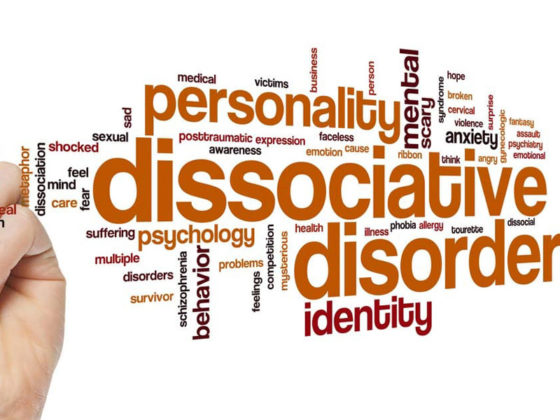Hypnosis – questions and answers
Hypnosis performed by a medical practitioner aka Hypnotherapy – uses guided relaxation, intense concentration, and focused attention to achieve a heightened state of awareness, sometimes referred to as a trance. In this state, the person’s attention is so focused that everything that happens around the person is temporarily blocked or ignored.
Q: What is hypnosis?
What is Hypnosis Therapy
A: That’s a difficult question to answer promptly and also precisely. Some people think that it is a ‘transformed state of awareness, however, since there is currently no concurred interpretation of consciousness this debate can go around in circles. When we discuss hypnosis we frequently tend to be either speaking about the loosened up, concentrated, taken in feelings related to a ‘hypnotic trance state’ (although some people do not like the term trance), or we tend to be discussing the intriguing things people can do when hypnotized – these are the items of ‘tip’. For more detail, a great location to begin reading is the interpretations page, or else follow the links on the left for additional information about the study in hypnotherapy as well as its usages.
Q: Is hypnotherapy genuine?
A: Short answer: yes! Hypnotic recommendations can alter individuals’ experiences as well as assumptions. For example, hypnotic tips can be utilized to create vibrant hallucinations or modify your perception of discomfort. Studies that gauge brain tasks have revealed that hypnosis and also hypnotic tips alter the way that the brain refines info. Randomized regulated medical tests have revealed that hypnotherapy can be an effective treatment for discomfort, and an effective part of therapies for various other conditions. People frequently doubt whether hypnosis is real since it would certainly be very simple to ‘phony’ a hypnotic response, as well as while this is true, there are likewise genuine measurable impacts.
Q: Can anybody be hypnotized?
Can anybody be hypnotized
A: Yes, everyone is hypnotizable somewhat – some greater than others. Vulnerability to hypnosis can be determined with a hypnotic sensitivity scale (see ‘dimension of hypnosis’. Scientists have a tendency to identify individuals as ‘highs’, ‘mediums’, or ‘lows’. Regarding 80% of people remain in the ‘tool’ band – suggesting that they can experience a lot of the impacts of hypnotic suggestion, as well as are likely to gain from its medical usage if needed. About 10% of the populace are considered highly hypnotizable – implying that they can conveniently experience rather dramatic changes in feeling and assumption with hypnosis. About 10% are categorized as ‘reduced’ – implying that they have actually not reacted strongly to hypnosis (although there are some skills programs that intend to increase sensitivity to hypnotherapy).
Some clinicians, especially Milton Erickson, have actually really felt that everyone can be hypnotized however that the hypnotherapist must customize the design or material of what they do. Nevertheless, considering that the only method we have of determining suggestibility is to take a look at exactly how individuals reply to recommendations, as well as considering that suggestibility is seldom gauged in scientific setups, it is hard to bring any proof to bear on this disagreement.
Q: Can Hypnozability be customized?
A: Educating programs have actually been created which intend to raise exactly how well participants react on tests of suggestibility. Some scientists have argued that raises produced through this technique are not genuine as well as are merely the result of individuals being urged to respond without needed experiencing their feedback as spontaneous (a standards Weitzenhoffer set as a ‘true’ response to recommendation). However, various other researchers have actually argued that the subjective responses of such ‘experienced high suggestible’ participants are equivalent to participants who were ‘normally high suggestible’ without training. Some medications have likewise been discovered to be effective in increasing suggestibility. See changing suggestibility for more in-depth details.
Q: Is hypnosis dangerous?
A: Hypnosis is not by itself an unsafe treatment, however, there are concerns that if it is not used correctly then it can bring about negative reactions. The risks associated with hypnotherapy (as an example, participants really periodically experience a mild frustration) have actually been revealed not to vary from those associated with attending a university lecture (Lynn, 2000).
Problems may occur as a result of faulty technique on the part of the hypnotherapist or due to misunderstandings on the part of the subject pertaining to hypnotherapy. For a fuller conversation on the possible threats of hypnotherapy read this area of Campbell Perry’s discussion of hypnosis on the False Memory Syndrome’s website.
Q: Can hypnosis make me do things I don’t want to do?
Can hypnosis make me do things I don’t want to do
A: The basic solution is no, you can not be made to do anything you don’t intend to carry out in hypnosis. In hypnotherapy, you keep power over your ability to act on tips, although if you do allow yourself to act on a recommendation you may feel as though the impacts are taking place by themselves.
Orne & Evans carried out a research study to discover if they can make hypnotized topics do antisocial acts, such as throwing a container of acid in the face of a study aide (for safety and security the container didn’t actually contain acid, however, the topics in the experiment didn’t know this). They discovered that 5 out of 6 high hypnotizable individuals did toss the ‘acid’, however, that 6 out of 6 low hypnotizable participants who were asked to mimic remaining in hypnotherapy threw the ‘acid’ as well. This experiment reveals that it’s not something unique regarding remaining in hypnosis which can make individuals carry out antisocial acts, yet instead something regarding the social scenario the experiment was performed in. The reasoning of the experiment is that if you can obtain people to dedicate antisocial acts without hypnotherapy (the reduced hypnotizable that was being asked to claim) that there is no demand to use hypnotherapy to discuss what individuals are doing (to learn more on experiments including authority reviewed Stanley Milgram’s well-known experiment below).
Q: Is hypnosis like sleep?
Is hypnosis like sleep
A natural, altered state of consciousness much like sleep, highway hypnosis, or daydreaming. A heightened state of suggestibility. A state of highly focused attention in which external stimuli are distended and suggestion becomes more effective. A dissociated state involves some degree of disconnection between conscious & unconscious processes.
A: The short answer is no. Although the word hypnotherapy is originated from the Greek god of sleep, Hypnos, researches have shown that hypnosis and also sleep differ. Researches of mind tasks have actually revealed that although there are characteristic patterns of mind tasks related to rest the very same has actually not been shown of hypnotherapy. To viewers hypnosis may appear to be like rest due to the fact that pointers of leisure are commonly given as part of a hypnotic routine, however, hypnotized people remain in a state much more similar to wakefulness (and hypnotherapy has also been caused in individuals riding workout bikes – so-called ‘energetic alert’ hypnosis).
Q: What does hypnosis seem like?
A: The answer is that hypnosis possibly feels different for everyone. Numerous hypnotists (scientists & medical professionals) utilize aspects of relaxation treatments, so individuals frequently link a feeling of relaxation with hypnotherapy. Different people have all sorts of physical reactions to leisure guidelines – some really feel as though their body is really hefty, whereas some can really feel really light, nearly as if they were floating. Psychologically, again people have all sorts of feedbacks. People normally report feeling extremely focused or absorbed, often easily so. Given that guidelines for images are typically used people can have extremely vibrant imaginative experiences – numerous record feeling ‘as if they were there. Erika Fromm created an excellent publication on self-hypnosis, based on the outcomes of a substantial study, which includes plenty of intriguing descriptions from participants in her studies.
Q: Can I get ‘stuck’ during hypnotherapy?
A: There is no evidence that anybody can end up being stuck in hypnosis. The most awful that could occur could be that you fall asleep – as well as awaken unhypnotized! Orne & Evans carried out a well-known research study where individuals were hypnotized, and also the experimenter leaves the area under the pretense that there is an issue he needs to take care of, the participant is after that observed (without his understanding) to see what takes place. The result was that participants automatically got up, the high hypnotizable taking a little longer to do so.
Q: What conditions can hypnosis deal with?
What conditions can hypnosis deal with
A: Hypnotherapy isn’t a therapy in its own right, but when made use of by a certified medical professional, dental practitioner, or psychotherapist hypnotherapy can be practical in treating: discomfort, anxiety problems (including fear, panic, PTSD), anxiety, irritable bowel syndrome, and also many more. See the hypnotherapy section for more details.
Q: I would like hypnotherapy to be part of my treatment, who can I see?
A: Different nations regulate hypnotherapy and psychotherapy in different means as well as in numerous countries no specialist training is needed in order to call oneself a ‘hypnotherapist’. The International Culture of Hypnotherapy advises that the only specialists making use of hypnotherapy must be those who are already qualified in professional self-control (such as medicine, dentistry, psychology, or psychiatric therapy). To estimate Martin Orne: “If an individual is not properly qualified to deal with something without hypnosis, after that they’re not certified to treat something with hypnosis, either. First, you look for that professional certificate on the wall– physician, dentist, clinical psychotherapist, or whatever. Then your search for the certificate of hypnosis.”
Q: Is NLP like hypnotherapy?
How NLP works
A: NLP, or Neuro-linguistic programs, is a set of techniques that are planned to promote personal growth. A few of these methods were developed from the work of effective hypnotherapists, especially Milton Erickson. NLP continues to be scientifically unvalidated and is not a part of mainstream academic psychology. There is a fantastic account of NLP on Skeptic, the doubter’s dictionary. Much more hesitant accounts of NLP are offered at Michael Load’s site as well as on Wikipedia.
Q: Are some words more symptomatic than others?
A: Careful use of language is absolutely crucial when using hypnosis, yet it’s hard to claim whether a particular word is more symptomatic than another. It is currently usually accepted that exactly how well an individual responds to suggestion is a lot more to do with their private characteristics (suggestibility, desire, absorption) than to do with the power or authority of the therapist (e.g. 3). A medical professional’s design of hypnosis can vary from authoritarian/direct (” when I click my fingers you will really feel … “) to permissive/indirect (” as I continue to chat you could start to notice that the sensation ends up being …”), and the indirect tip has actually been popularized by fans of Milton Erickson. Experiments have been performed to compare the impacts of these kinds of suggestion however results do not enable us to conclude that is a lot more efficient than the various other (4 ). (Concern submitted by a confidential individual).
Q: Can hypnosis aid me to stop drinking alcohol?
Can hypnosis aid me to stop drinking alcohol
A: There’s truly very little proof that hypnosis is an efficient therapy for alcoholism. In an evaluation, Nash & Benham claim that alcohol and drug addiction do not react well to hypnosis, as well as two research studies that I can locate which compare hypnosis (or self-hypnosis) therapy to various other types of therapy such as psychotherapy or stress management do not reveal any kind of persuading advantage for making use of hypnosis (Jacobson, 1973; Pekala, 2004). (Concern sent by an anonymous customer).
Q: Can hypnotherapy create rest conditions?
A: There are no recorded situations of hypnotherapy causing or contributing to the development of a rest disorder. As a matter of fact, there is much proof that hypnotherapy can really play a valuable role in treating sleep disorders such as sleeping disorders (Borkovec, 1973), sleep-terror as well as sleepwalking (Hurwitz, 1991).
Q: Is hypnosis scientifically researched?
A: Science is a technique of discovering expertise: it’s really a process of subjecting your suggestions to an empirical test to see whether they are sustained by proof (see the Wikipedia entrance for a far more comprehensive summary). Many researchers take a scientific method to studying hypnotherapy: they create research study questions (hypotheses), after that, they systematically check them to see whether they are supported. Our understanding of hypnosis advances due to this: individuals made use of to think that the impacts of hypnosis resulted from a mystical magnetic fluid; we currently think that the results are the result of an interaction in between hypnotherapist as well as topic which can affect the way the mind processes info. Research study psychotherapists want what hypnotherapy is, and also physicians and also medical psychologists want what impacts hypnotherapy can have upon clinical and also mental conditions. Their research study is released in journals, and you can browse the database utilizing online devices like PubMed or Google Scholar. So there are certainly scientists thinking about hypnotherapy, and also you might claim that there is a science of hypnotherapy. Hypnotherapy is the name we offer to make use of hypnotherapy to deal with psychological and medical conditions, and there matters research regarding making use of hypnosis to deal with the disease. However, ‘hypnotherapy’ is a controversial term. Expert organizations such as the ISH, ASCH, and ESH think that just appropriately qualified specialists (such as doctors, dental experts, psychologists) ought to use hypnosis, which they should use as a tool alongside their various other professional skills. In their sight hypnotherapy isn’t a therapy in its own right, so a clinician would certainly claim “I’m a psychologist/doctor/dentist who makes use of hypnotherapy” as opposed to” I’m a hypnotherapist”. Individuals who call themselves ‘hypnotherapists’ don’t (as a whole) have a tendency to have any health care credentials besides hypnotherapy training, and they do not have a tendency to release much research. Given that, it might be reasonable to say that there is a science of hypnosis, yet that ‘hypnotherapists’ do not add much to it. (Concern sent by a confidential user).
Q: I often drop comfortably asleep when making use of self-enhancement hypnosis CDs. Are the tips on the CD still reaching my subconscious mind or does the truth that I am sleeping and not in hypnosis avoid this?
A: The idea that we can find out while we are asleep, so-called ‘hypnopedia’, was preferred throughout the 1950s. That is additionally the moment when a lot of the research was done. Outcomes do not appear to be really encouraging though: one study by Emmons & Simon) located that participants who had actually been played recordings while asleep did not far better than control participants at identifying words from a list. Not much study has been done given that which indicates that this is possibly not a fruitful subject of the research study. More modern research study has analyzed whether it is feasible for individuals undergoing basic anesthesia to find out. In these experiments really basic ‘finding out’ is examined: much simpler than the sort of deep level learning that you might want from a hypnotherapy CD. The signs are that it could be possible for really basic organizations to be formed, however, that the complex definitions of occasions are not really found out (Deeprose, 2006). To recap, the proof until now appears to point towards hypnotherapy requiring the individual to be awake. (Concern submitted by a reader).
Q: Under hypnotherapy, do individuals address truthfully the concerns you ask?
A: No more or less than they do when they are not under hypnotherapy. Hypnotherapy cannot oblige people to do points they don’t wish to do, and also it can’t force them to be sincere either. Pointers given during hypnotherapy can purposely or unintentionally influence memories, as well as consequently hypnotically-assisted memory recall is not admissible in court in most countries.
Q: Can negative behavior be caused under hypnotherapy without my free will?
A: See the solution above regarding whether hypnotherapy can make individuals do points they do not want to do. The short answer is no: hypnotized participants typically have the capability to refuse a tip. (Inquiry sent by a confidential individual).
Q: When doing past life regression, when should I start asking questions? Sometimes I have actually noticed REM as well as other trance signs which is when I ask inquiries, yet I locate they abruptly awaken or have actually already gone to sleep. When and how should I start asking inquiries regarding youth memories or past lives?
Past life Regression
A: I do not know what context you’re operating in, however, unless you’re appropriately qualified I would think it ideal not to ask inquiries regarding youth memories or past lives while customers are hypnotized. Although hypnotherapy is typically used to re-visit occasions from an individual’s past, there is no proof that hypnotherapy can aid individuals to recall memories from childhood years with any type of special accuracy. When refrained properly you risk producing false-memory syndromes, which can be particularly purposeless in individuals with backgrounds of trauma. There is no clinical evidence supporting the existence of past lives, as well as no proof that it is practical to present the principle in therapy. The only time I ever give tips for past lives is as a mentor presentation, to demonstrate how creative people’s imaginations are.
If patients/volunteers are quickly awakening or going to sleep, as well as do not do so for other parts of a hypnosis session, it would certainly indicate to me that they are not comfy with what is occurring and have actually not agreed to the procedure. Unless you really know what you are doing I would advise you not to use regression methods. (Concern submitted by a reader).
Q: I have listened to that there are 3 types of people that are un-hypnotizable: the very first is drunk, the second is individuals that are high on medicines, can you tell me the 3rd one?
A: The stylish response is “people who don’t want to be hypnotized”, however it’s worth clearing up a few misunderstandings. Researchers measure Hypnotisablity on a continuum – it’s not that a person can or can’t be hypnotized. A far better inquiry is “how hypnotizable is he or she?”. Hypnotizability complies with a typical distribution, so a little percentage of people are ‘highs’, a tiny percentage are ‘lows’, and also the bulk can experience some impacts of idea in hypnotherapy. It’s simple to be ‘un-hypnotizable’, simply do not enable yourself to be hypnotized – no one can be hypnotized against their will. Interestingly some medications such as laughing gas (laughing gas) and alcohol appear to raise Hypnotisablity. It depends on the drug, however, others such as diazepam don’t seem to have any type of result. See the web page on modifying Hypnotisablity for additional information. (Question sent by a reader).
Q: Is the idea of hypnosis being a unique state of awareness revoked by highly motivated individuals forging hypnosis?
A: No greater than it revokes the concept of a ‘damaged leg’ if someone makes believe to be harmed. The fact that it is feasible to make belief be hypnotized makes it an actually fascinating sensation. Stage hypnotherapists do not actually care significantly whether their individuals are fabricating or not, as long as the target market is chuckling. Researchers have a more challenging time ironing out the actual reactions from the pretenders, however, they have actually created some intriguing devices. One strategy is to utilize the real/simulator style. In this design, you supply the same pointers to people low and high in Hypnotisablity, with the lows told to act ‘as if they were hypnotized. If both groups do the exact same after that your outcome is possibly not as a result of hypnosis, but if the highs perform differently then it is assumed that several of the suggested results were real. More just recently, mind imaging techniques have been made use of to test the ‘genuineness’ of hypnotic impacts. (Inquiry submitted by a reader).
Q: Is hypnotherapy ever is a one-session “quick fix” for a problem?
A: The answer to this will depend a great deal on what ‘the issue’ is. It is simple to visualize that someone is most likely to, say, quit smoking after a solitary session than they are to recuperate from a more serious psychological illness such as chronic clinical depression or trauma (PTSD). Regarding cigarette smoking, there is some proof that a percentage of people will certainly become sober after one session of hypnosis. In one research 23% were abstinent two years after a single session of hypnotherapy. However, the evidence additionally seems to indicate that hypnosis is not a lot more reliable than other smoking cigarettes cessation treatments – so it is likely that roughly this percentage of people would certainly be aided to quit cigarette smoking after a single session of any type of therapy, which makes hypnosis appear rather less unique.
Regarding single-session therapies for various other mental issues, there does not seem much strong proof for the efficiency of such treatments. There is a ‘short therapy’ motion (commonly called ‘service concentrated quick therapy’) for which there is some proof of performance for sure conditions. Within the short treatment, movement is some specialists that want ‘single-session psychotherapy’, but there is extremely little regulated evidence to recommend that it works.
As opposed to single-session therapies there are thousands of randomized controlled tests for making use of cognitive-behavioral treatment (CBT) for the treatment of psychological problems. These regulated studies normally suggest that a minimum of 6-20 sessions of psychiatric therapy are necessary for the treatment of light to modest difficulties. Thinking a lot more generally about the context in which much therapy is provided, CBT is widely used in lots of financially constrained medical solutions worldwide. The reality that CBT has advised shows that it is most likely among one of the most efficient treatments around: this judgment is also sustained by treatment review bodies such as the National Institute for Health and also Professional Excellence. If quick treatment or solitary session therapy is really effective after that the obligation is on the experts to demonstrate it using regulated studies, this stays to be shown.
Q: Do specific differences in “imaginative suggestibility” supply a less complex description than dissociation in explaining responsiveness to hypnotic suggestions?
A: Dissociation concepts of the hypnotherapy (e.g. Hilgard’s neodissociation concept, Woody & Arbor’s dissociated control theory) suggest that hypnosis creates ‘splits’ or dissociations in systems of cognitive control. Consistent with this there is evidence that Hypnotisablity is higher in patients with ‘dissociative’ problems such as trauma. Nevertheless, dissociation concepts additionally forecast that healthy people who dissociate extra in everyday life ought to also be a lot more hypnotizable. This does not seem to be the instance: studies associating hypnotic suggestibility with scores on the dissociative experience scale (DES) aren’t substantial. (e.g. Dienes et alia, 2009). Provided this, it doesn’t seem as though dissociation is horribly beneficial when attempting to explain responsiveness to hypnotic tips.
On the other hand, scores of creative suggestibility (non-hypnotic suggestibility) tend to correlate really extremely with hypnotic suggestibility (Kirsch & Braffman, 2001). This suggests that both belong, but there are two issues staying:
Some individuals argue that ‘hypnotherapy’ encompasses a broad domain of suggestion, in which hypnotic and non-hypnotic recommendations are essentially the very same point.
Ok, you might have clarified variance in responsiveness to hypnotic suggestion, however, you have not described the device through which individuals react to non-hypnotic suggestion.
What seems to be needed is a concept to discuss exactly how individuals respond to non-hypnotic tips. Kirsch & Braffman (2001) say that these aspects include: feedback expectancy, attitudes in the direction of hypnotherapy, dream proneness, absorption, as well as go/no-go reaction time. Nevertheless, they warn that these variables do not make up every one of the irregularities in non-hypnotic suggestibility. It is feasible that there is a hidden capacity, maybe with a genetic contribution to suggestibility (Raz, 2008), or organizations in between suggestibility and the dimension of specific mind regions (Horton et al, 2004). (Inquiry sent by a reader).
Q: Does the reality that very inspired subjects can phony hypnotic effects invalidate the notion of hypnosis as a unique state of awareness? Why, or why not?
A: Does the fact that a motivated individual can phony a busted leg revoke the idea of broken legs? Or does the fact that someone can phony anxiety invalidate the idea of anxiety? Even if something can be forged does not make it any less actual.
I think the bit I would certainly differ with is the “one-of-a-kind state of consciousness”. Scientifically it’s extremely tough to distinguish between different ‘states of awareness’. We’re respectable at determining whether individuals are
• awake,
• asleep, or
• in a coma.
Yet the scientific research isn’t great at distinguishing between more subtle states of awareness.
As opposed to general ‘states of awareness, it is possible to consider even more particular mind activity related to hypnotherapy and also hypnotic impacts. There is a great deal of neuroimaging evidence to suggest that there is something unique about the impacts of the idea given in hypnosis and that it generates genuine results. For example, a hypnotized individual provided ideas for discomfort relief can feel much less discomfort, as well as this, is related to decreased activity in the network of brain areas involved in discomfort.
For more questions and for an initial consultation with Dr. Tsan contact our clinic at 215-621-8434 or use our scheduling application





